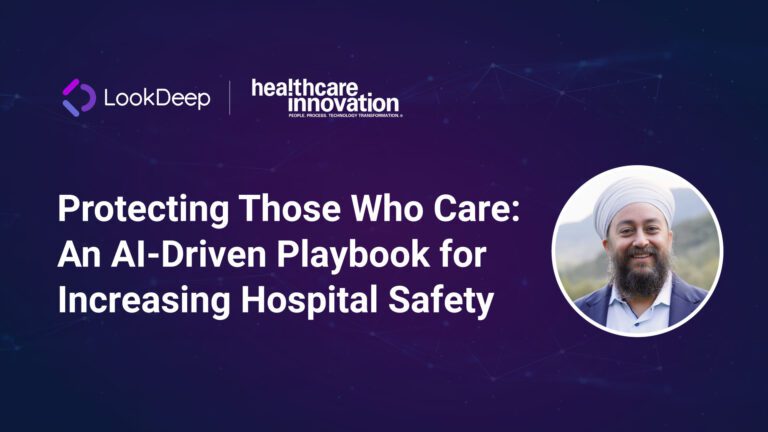In his latest article for Healthcare Innovation, LookDeep Health CEO Narinder Singh underscores a critical truth: protecting healthcare workers is more than a moral obligation — it’s essential to the quality of patient care, staff retention, and hospital financial health.
Systemic change starts by closing the dangerous gap between when a threat begins and when help arrives.
Understanding Escalation of Violence
Violence often follows a predictable escalation: from agitation to perceived threat to physical harm. AI-powered computer vision identifies these patterns early — detecting tone, movement, and behavior changes. Unlike static risk scores in a chart, AI delivers real-time context, enabling care teams to adjust interventions dynamically.
A Powerful Combination of Real-Time Location Systems (RTLS) & AI-Powered Computer Vision
Wearable duress and ambient AI are complementary and can provide an unparalleled level of intervention.
- RTLS is everywhere, AI supports patient interaction. Hallways and parking structures still benefit from location badges; patient rooms gain a silent watcher.
- Different thresholds. AI can whisper the first warning to a charge nurse or security; RTLS can shout for immediate response when staff already feel unsafe.
- Unified orchestration. Both signals can feed the same nurse‑call, overhead paging and security dispatch systems, giving leadership a single continuum of escalating response.
Compassion Plus Analytics: Redefining Hospital Safety
Technology alone does not create a culture of safety, but it amplifies human capacity and empathy with data‑driven watchfulness.
- RTLS badges reassure clinicians that help will find them quickly.
- AI‑powered computer vision gives them a partner that notices what is happening before danger erupts.
- Earlier intervention lets us do more than record violence — it helps prevent it.
By embracing proactive, future-ready safety technologies, healthcare leaders send a clear message to every nurse, aide, and physician: “Your well‑being is as critical as the patients you care for.”
Read the whole piece here.


